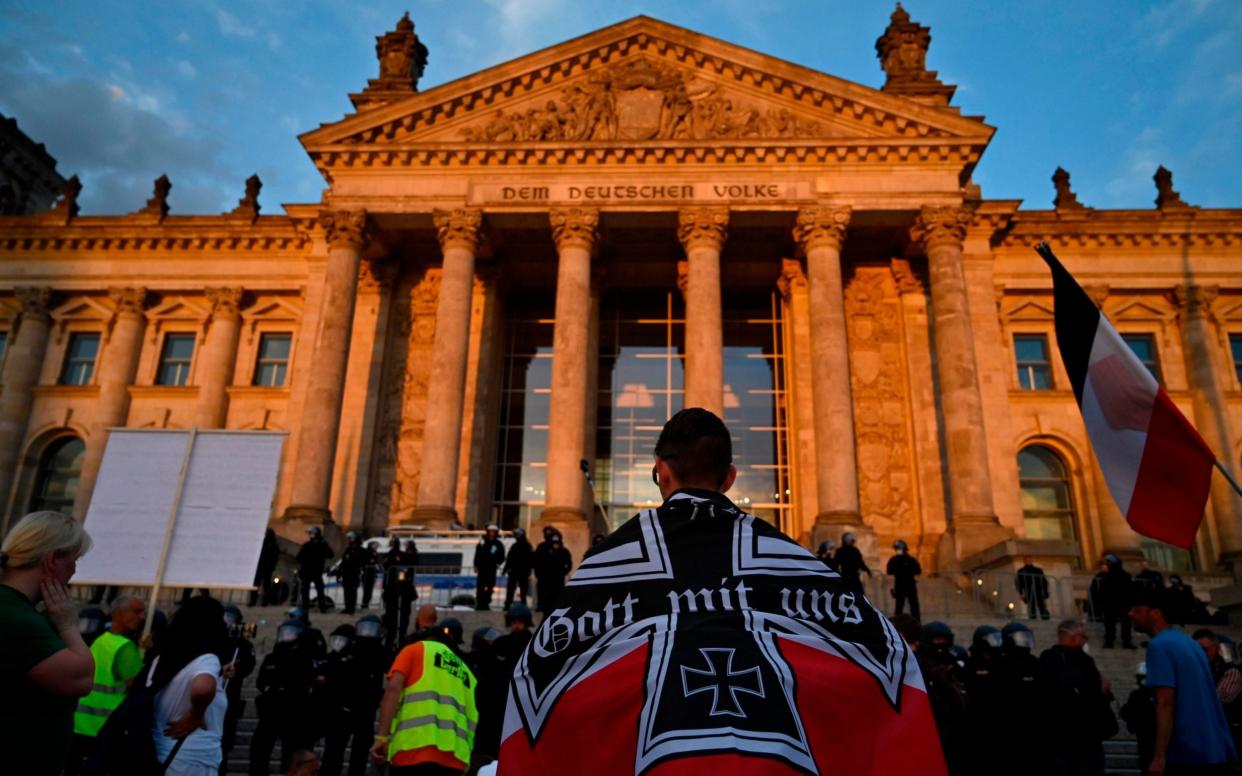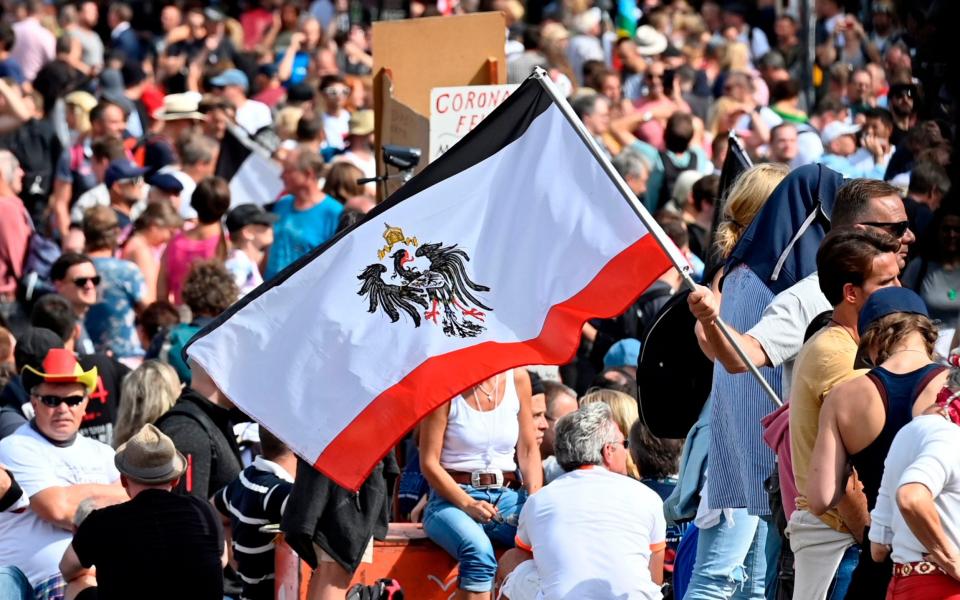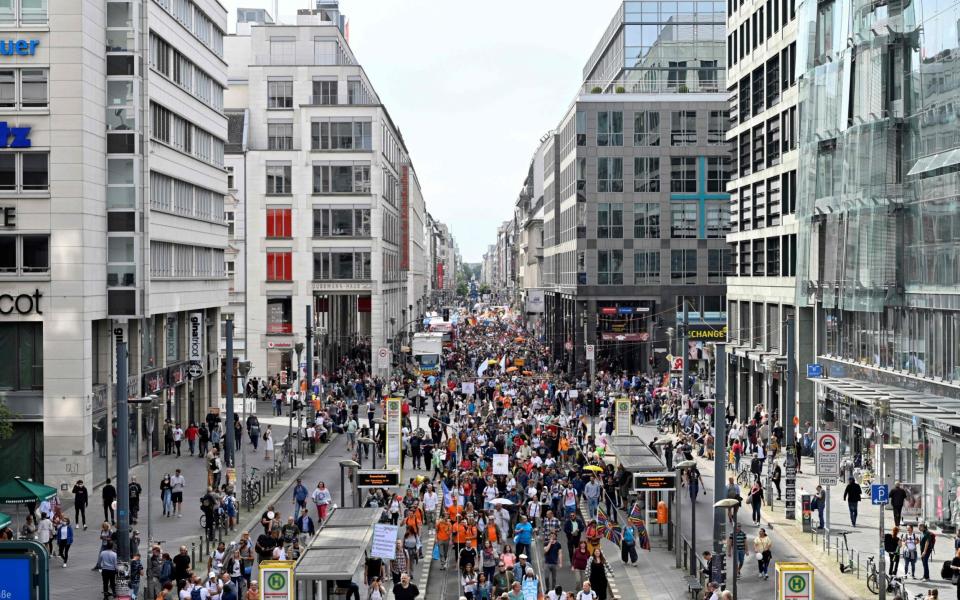Germany's president condemns far-right Reichstag demonstration as an 'attack on democracy'

Germany’s president condemned an “unacceptable attack on the heart of our democracy” on Sunday, after far-right activists broke into the grounds of the Reichstag, the seat of the German parliament.
The incident occurred after a demonstration against coronavirus measures on Saturday, attended by some 40,000 people.
Early Saturday evening activists carrying the black, white and red-striped flag of the Kaiser era broke through barricades separating the Reichstag from the march.
Video clips show a stream of demonstrators run up the steps of the building before gathering in front of the doors. Riot police then step in to ensure that demonstrators did not attempt to enter the building.
“We will never accept this,” said President Frank-Walter Steinmeier.
“The Reichstag is our house of parliament and thus the symbolic centre of our free democracy - that it’s been abused by extremists is unacceptable,” added Interior Minister Horst Seehofer.

While the main demonstration was extremely heterogeneous, containing everyone from rainbow flag-waving peace activists and anti-vaxxers, to parents angry at mask-wearing rules in schools, a heavy far-right presence was evident throughout the day.
The black, white and red flag of the Kaiser era symbolises the German monarchy, overthrown at the end of the First World War.
Unfurling the flag in front of the Reichstag is particularly sensitive given that the end of the monarchy was declared from one of the building’s balconies in 1918, by Social Democrat politician Philipp Scheidemann.
The flag is used by members of the Reichsbürger movement, a growing group in the German far-right scene who reject the modern German state and seek a return to the political system and borders of the state before the treaty of Versailles was signed.
Throughout the day police reported conflicts with far-right activists. A particular focal point of violence was the Russian embassy, where riot police dragged several people from the crowd.

Others at the protest told the Telegraph that they were uncomfortable demonstrating alongside the far-right, but had taken to the streets due to what they see as the “exaggerated” government response to the virus.
Among the speakers was the American environmentalist Robert Kennedy, a nephew of the former US president. Mr Kennedy claimed that “governments are using the pandemic to create totalitarianism".
Berlin had made efforts to ban the protest after attendees at a similar march in early August refused to wear face masks. The ban was quashed by a city court.
On Saturday, police tried to disband the march shortly after midday due to protesters not maintaining social distancing, but people streamed through the empty streets of central Berlin regardless.
A similar march in London on Saturday was attended by around 10,000 people, with conspiracy theorist David Icke one of the main speakers.

